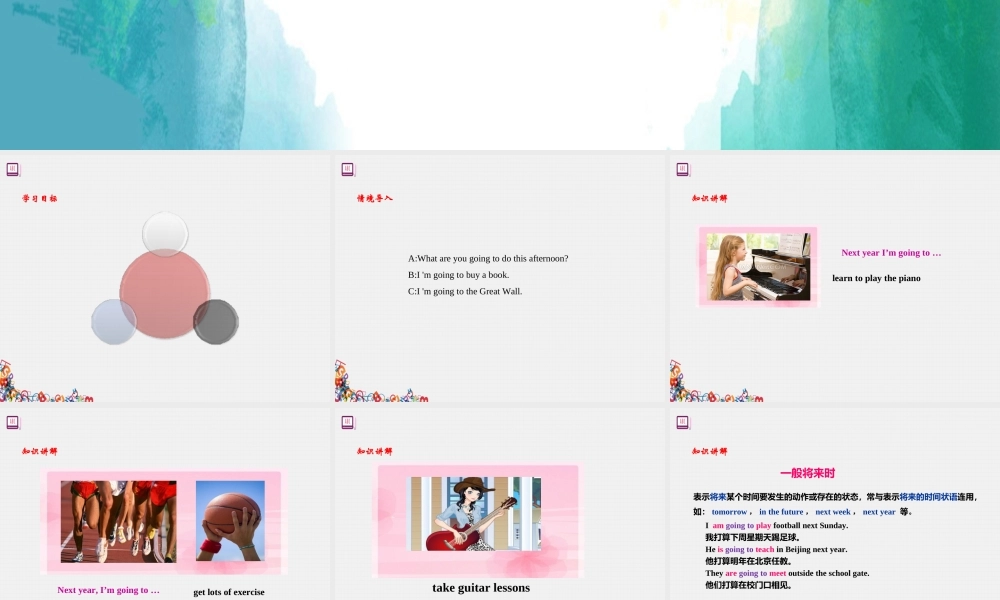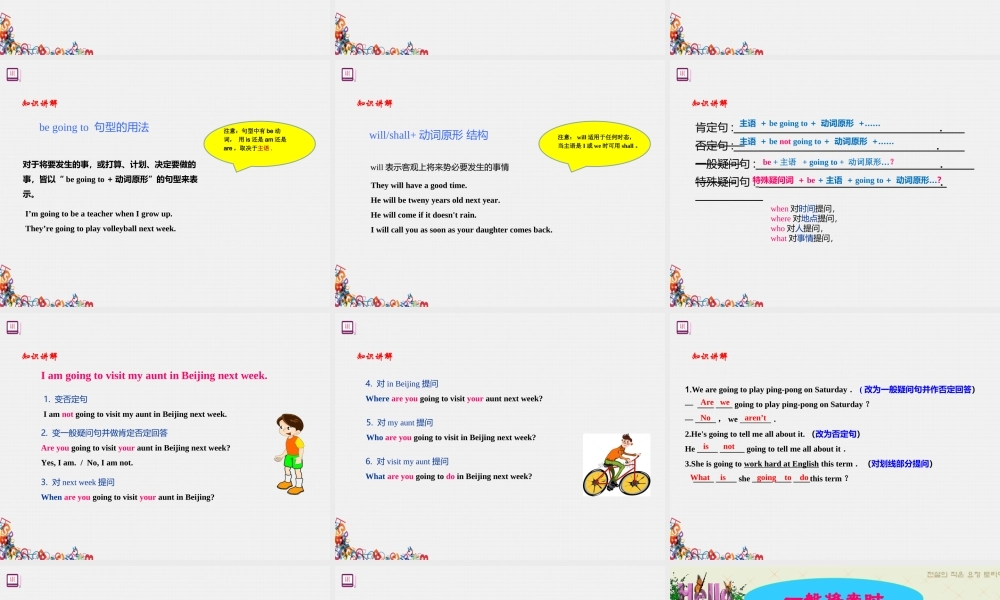一般将来时学习目标情境导入A:What are you going to do this afternoon?B:I 'm going to buy a book.C:I 'm going to the Great Wall.learn to play the pianoNext year I’m going to …知识讲解get lots of exerciseNext year, I’m going to …知识讲解take guitar lessonsNext year, I’m going to …知识讲解一般将来时 表示将来某个时间要发生的动作或存在的状态,常与表示将来的时间状语连用,如: tomorrow , in the future , next week , next year 等。I am going to play football next Sunday.我打算下周星期天踢足球。He is going to teach in Beijing next year.他打算明年在北京任教。They are going to meet outside the school gate.他们打算在校门口相见。知识讲解be going to 句型的用法注意:句型中有 be 动词, 用 is 还是 am 还是are ,取决于主语 .对于将要发生的事,或打算、计划、决定要做的事,皆以“ be going to + 动词原形”的句型来表示。I’m going to be a teacher when I grow up. They’re going to play volleyball next week.知识讲解will/shall+ 动词原形 结构注意: will 适用于任何时态,当主语是 I 或 we 时可用 shall 。They will have a good time.He will be tweny years old next year.He will come if it doesn't rain.I will call you as soon as your daughter comes back.will 表示客观上将来势必要发生的事情知识讲解肯定句 : . 否定句 : . 一般疑问句 : . 特殊疑问句 : . 主语 + be not going to + 动词原形 +……be + 主语 + going to + 动词原形…?主语 + be going to + 动词原形 +……特殊疑问词 + be + 主语 + going to + 动词原形…?when 对时间提问,where 对地点提问,who 对人提问,what 对事情提问,知识讲解I am going to visit my aunt in Beijing next week. 1. 变否定句I am not going to visit my aunt in Beijing next week.2. 变一般疑问句并做肯定否定回答Are you going to visit your aunt in Beijing next week?Yes, I am. / No, I am not.3. 对 next week 提问When are you going to visit your au...




